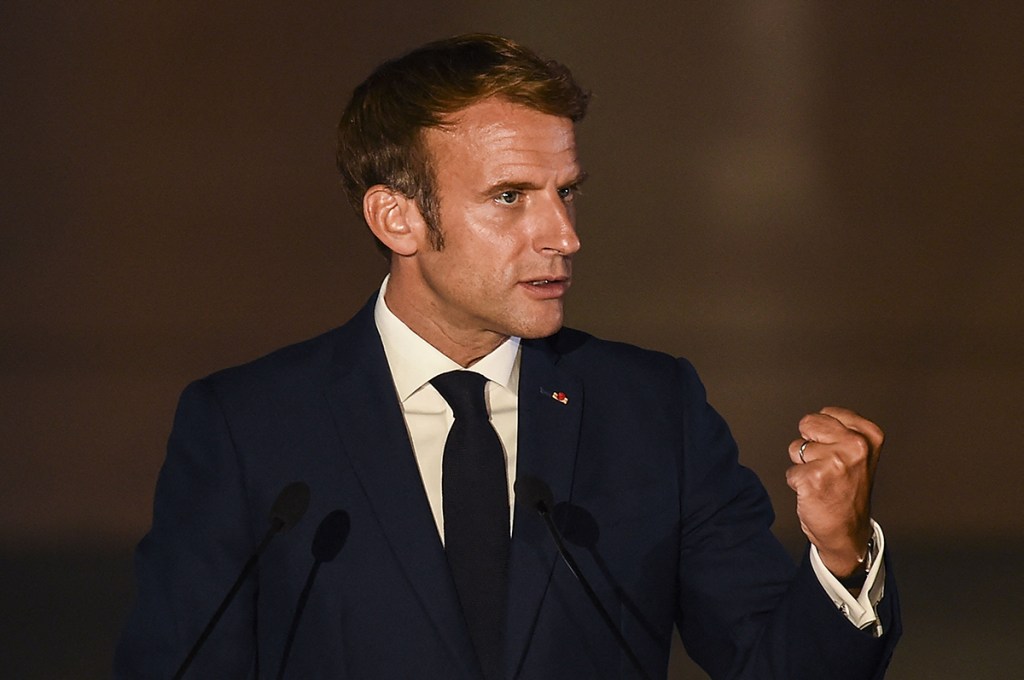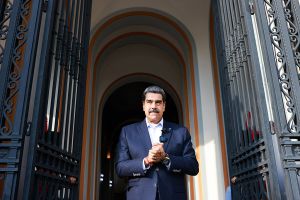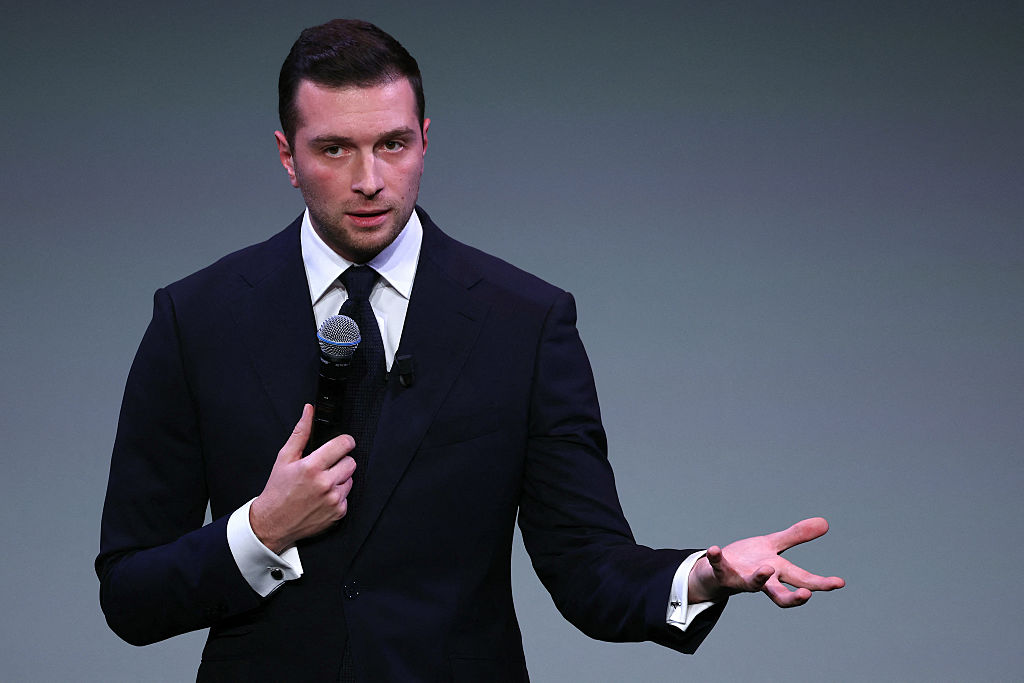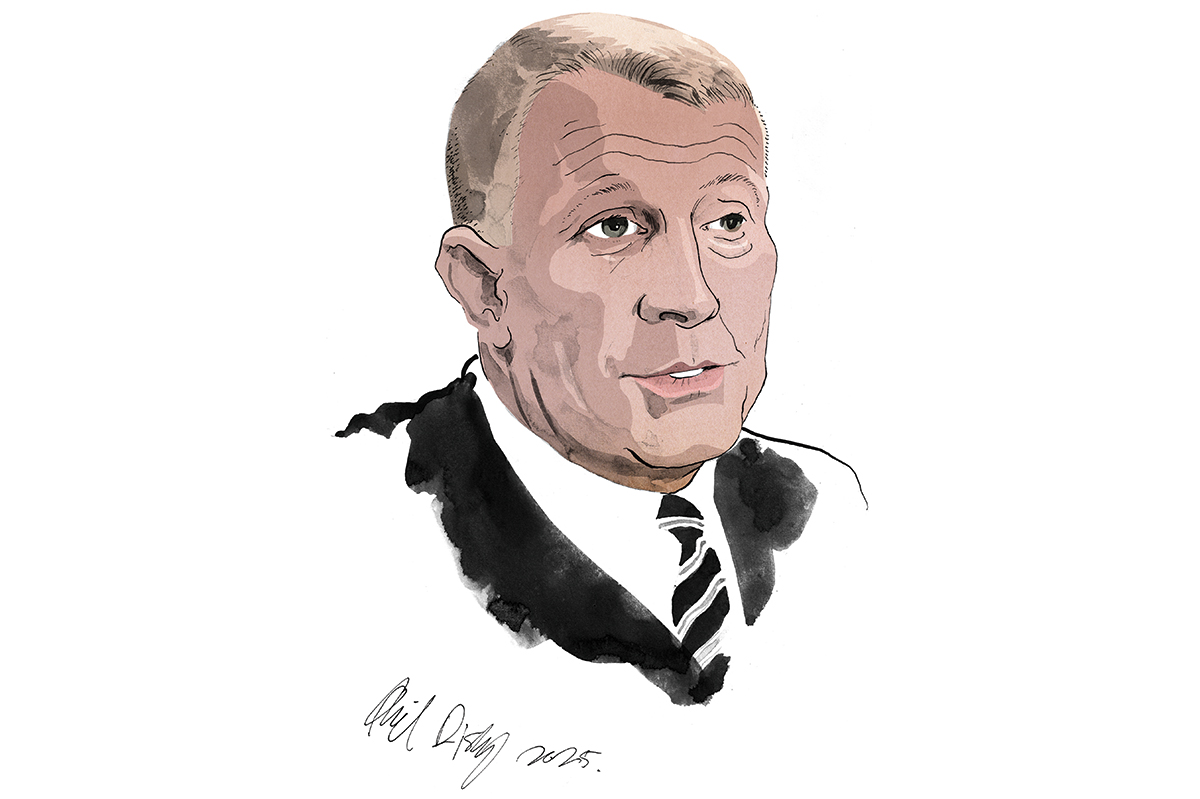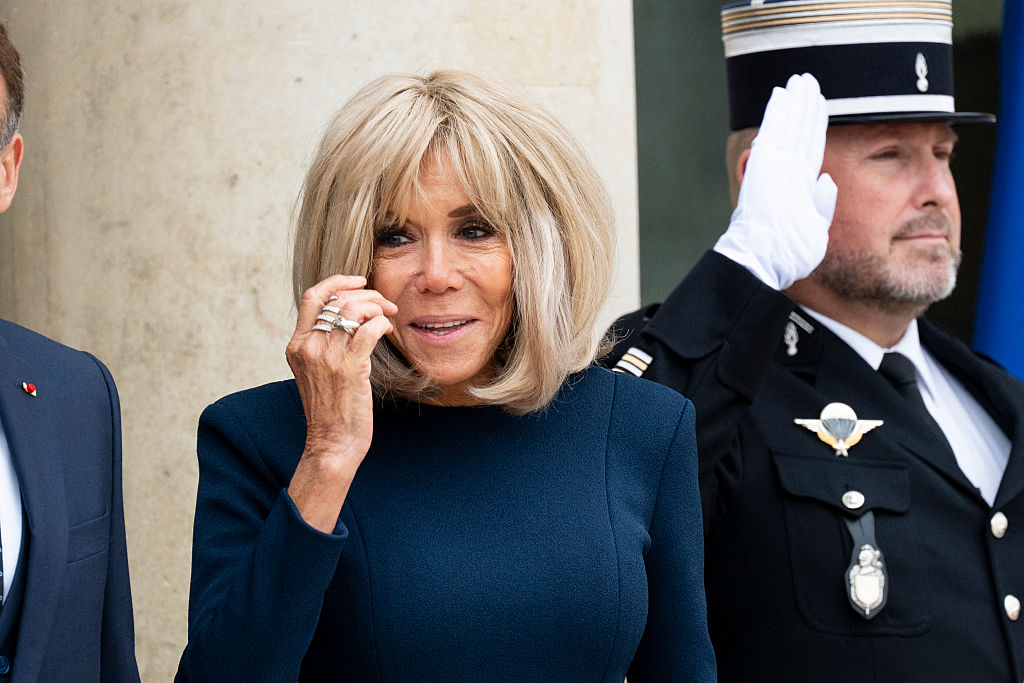Emmanuel Macron has said that his thought is too subtle to be readily understood by mere mortals, and he’s right. Penetrating the logic of his four-dimensional brain is not a task for the intellectually deficient. The trick is to remember that he understands the Anglo-Saxon commentariat, and he knows when they can be useful to him.
Macron can see, for instance, that the English-speaking media are relishing his ‘tantrums’ over the cancellation of the Australian submarine contract and the Swiss decision to buy American warplanes in preference to French jets. But there is also likely to be a sophisticated political calculation behind his recall of his ambassadors in Washington and Canberra, and his cancellation of a bilateral summit with his Swiss counterpart.
It’s simply not credible that Macron and his entourage were really surprised by Australia’s abandonment of the submarine deal — Australian media have been predicting as much for months — or that his hysterical reaction was anything other than calculated. Nor was it ever probable that the Swiss would buy fourth-generation Rafale jets in preference to the fifth generation of stealthy F-35 aircraft on offer from the Americans.
Consider, also, that Macron is observing political events in Germany as not necessarily obstructive to his imperial ambitions. Angela Merkel only pretended to treat Macron as an equal. She’ll inevitably be succeeded by a much weakened leader. The French president has spied a strategic opportunity: to lead not just France but Europe.
So Macron’s cries of ‘betrayal’, whether justified or not, are a means to an end. Having failed to seal his arms deals, he is now launching a twin-pronged political strategy that combines a very traditional demonization of Anglo-Saxons with his own ambition to succeed Merkel as the undisputed leader of Europe, in order to create the ‘European renaissance’ — an idea that has always obsessed him.
The key to Macron’s strategy is to establish a European military alliance independent of Nato, an alliance which he has already declared ‘brain dead’. In this new order, France, the only militarily capable member of the EU, would be the undisputed leader.
There are many in Washington and London who regard the idea of ‘European strategic autonomy’ as pure fantasy, given a German army equipped with broomsticks. But Macron might not be so concerned as to whether an EU defense capability is regionally or globally credible, so much as with the optics of a deeper, omniscient Europe under undisputed French leadership. Which is to say, his own leadership.
Electorally, taking on the perfidious Anglophones has always played well in French politics: Macron is channeling De Gaulle, who pulled France out of the Nato command structure and expelled American forces from the country. Macron’s opponents might say that the AUKUS deal has made France a laughing stock, but this is unlikely to win many votes; the French do not take kindly to such talk.
Macron, on the other hand, can exploit events to argue that only his vision of Europe can offer an alternative to the Anglo-Saxons; only a France-led Europe will be strong enough to defend Europe against the threats of China, Russia and Islamism. Dismissing the British as American lapdogs is part and parcel of this. Macron’s calculations depend of course on his reelection next year, but that remains more than likely. His opposition is atomized and much of it is incoherent.
Napoleon, whom Macron admires, famously sought generals who were lucky. Macron, however, may be preparing to make his own luck, seizing a political victory from the jaws of defeat. How better than to assign his shiny new submarines and jets to a European defense organization, and get the Germans to pay for them? In doing so, he can present himself as a new Charlemagne. He’s not as deranged as many in London, Washington and Canberra might think.
This article was originally published on The Spectator’s UK website.



